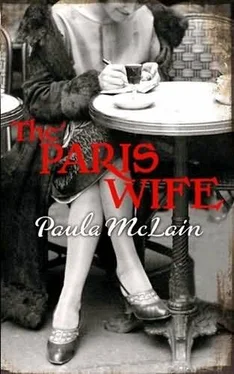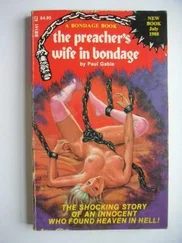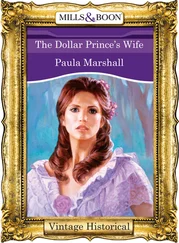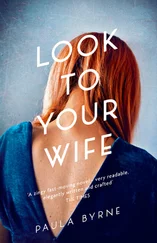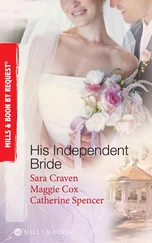“Are you nervous?” I asked as he was organizing his notebooks and preparing to leave.
“Of what? He’s just a big bully, isn’t he?”
“I don’t know. Some say he’s a monster.”
“Maybe, but monsters don’t always look that way. They have clean fingernails and use a knife and fork and speak the King’s English.”
I buttoned his coat and brushed the fabric over his shoulders with my hands.
“You’re fussing, wife. Take a nap, and don’t worry.”
He was gone for two hours, and when he came back to the hotel to type up his notes, he seemed all too pleased to tell me he’d been right. “The man’s up to here with bluff,” he said, gesturing to his neck, “and nothing on top.”
“Was he wearing his black shirt?” I asked, very much relieved.
“He was, they all were.” He sat down at the desk and put fresh paper in his Corona. “He’s bigger than you’d guess, too, with a wide brown face and very pretty hands. A woman’s hands, really.”
“I wouldn’t write that if I were you.”
He laughed and began to type rapid fire in his usual way, his fingers stabbing quickly with very little breaking or breathing. “I’ll tell you what else,” he said without looking up, “there was a beautiful wolfhound pup with him in the room.”
“So the fascist monster is a dog lover.”
“Maybe he planned to eat it later,” he said, grinning.
“You’re terrible.”
“Yes,” he said, his index fingers poised for another violent attack on his machine. “That was a fine dog.”
The next day we boarded a bus to Schio, where Ernest wanted to show me the mill and the wisteria and every part of the town that had managed to stay so fine in his memory, no matter what else had happened around it. But on the way, the sky dimmed and grew gray. It began to rain and didn’t stop. When we finally arrived at the town, Ernest seemed surprised. “It’s so much smaller,” he said.
“Maybe it’s shrunk in the rain,” I said, trying to lighten the mood, but quickly realizing that it wasn’t going to be possible. For the whole visit, Ernest wrestled with memory. Everything had changed and grown dingy in the four years since he’d last been here. The wool factory-closed down during the war-spewed black muck into the swimming hole where Ernest and Chink had bathed on so many hot afternoons. We walked up and down the winding streets in the rain, but everything looked dull and lonely, the shopwindows full of cheap dishes and tablecloths and postcards. The taverns were empty. We went into a wine shop where a girl sat carding wool.
“I can barely recognize the town,” Ernest said to her in English. “So much is new.”
She nodded and continued with her work, drawing the paddles back and forth, the white fibers becoming long and smooth.
“Do you think she understands you?” I said to Ernest quietly.
“She understands me.”
“My husband was here during the war,” I said.
“The war is over,” she answered without looking up.
Deflated, we gave up on sightseeing and went to check in at the Two Spades, but it had changed, too. The bed creaked, the linens were worn and sad looking, and the lightbulbs were filmed over with dust.
In the middle of a tasteless dinner, Ernest said, “Maybe none of it happened.”
“Of course it did,” I said. “I wish Chink were here. He’d find a way to cheer us up.”
“No. He wouldn’t be able to take it either.”
We slept badly that night, and when morning came the rain went on and on. Ernest was still determined to show me Fossalta, where he’d been wounded, and so we found a driver who would take us as far as Verona and then boarded a train to Mestre, where we had to find another car and driver. On and on, all day, and for the whole of the trip, Ernest studied maps and tried to match up what he saw in the countryside to what he remembered seeing years before. But nothing was the same. Fossalta, when we finally arrived, was worse than Schio because there wasn’t a single sign of ravage. The trenches and dugouts had vanished. The bombed houses and buildings had been changed out for new. When Ernest found the slope where he’d been wounded, it was green and unscarred and completely lovely. Nothing felt honest. Thousands of men had died here just a few years earlier, Ernest himself had bled here, shot full of shrapnel, and yet everything was clean and shiny, as if the land itself had forgotten everything.
Before we left, Ernest combed the hedgerows, and finally came away with a single rusted shell fragment, not much larger than a button.
“Chasing your past is a lousy, rotten game, isn’t it?” He looked at me. “Why did I come?”
“You know why,” I said.
He turned the fragment over in his hand a few times and I guessed he was thinking about our talk with Chink, and how the war in his head couldn’t be counted on any longer. Memory couldn’t be counted on. Time was unreliable and everything dissolved and died-even or especially when it looked like life. Like spring. All around us, the grass grew. Birds made a living racket in the trees. The sun beat down with promise. From that moment forward, Ernest would always hate the spring.
We didn’t return to Paris until late in June, and before long the Bastille Day celebrations had begun, and there was dancing and singing in the street at all hours. It was hot and noisy, and we shouldn’t even have tried to sleep. I could see Ernest’s restless outline in the dark, one arm over his eyes.
“It will be our anniversary soon,” I said.
“Should we go away?”
“Where would we go?”
“To Germany, or maybe to Spain.”
“We wouldn’t have to,” I said. “We could stay home and get very drunk and make love.”
“We could do that now.” He laughed.
“We could,” I said.
The clarinetist outside our window played a series of low notes, waiting for accompaniment, then fell silent again. Ernest turned on his side and reached to stroke my bare shoulder. His touch gave me a delicious run of chills, and then he pulled me toward him and rolled me over onto my stomach without saying anything, covering my body with his. He was heavy and warm, and I could feel his lips and forehead against my neck.
“Don’t move,” he said.
“I’m hardly breathing.”
“Good.”
“I like it slow this way.”
“Yes.” His arms were bent to each side of me so he wouldn’t crush me completely, but I wanted to be crushed a little.
Afterward, as we lay in the dark, the same laughter rose from the street, and the music was louder, if anything, and more chaotic. Ernest grew very quiet again, and I wondered if he was thinking about Schio and all that wouldn’t be found there, and of the sadness he’d carried home with him.
“Should I get up and shut the window?”
“It’s too hot, and it won’t help anyway. Just go to sleep.”
“Something’s on your mind. Do you want to tell me?”
“Talking won’t do a lick of good either.”
I could hear that he’d fallen into a very low place, but I believed, naïvely, that I could help if I could get him to talk about it. I continued to gently press and finally he said, “If you really want to know, it’s making love. There’s something about it that makes me feel emptied out afterward, and lonely too.”
“How awful,” I said, feeling the sting of his words. We’d just been so very much with each other, or at least I’d felt that way.
“I’m sorry. It’s nothing you’ve done.”
“The hell it’s not. Let’s not ever do it again. We won’t have to. I won’t care.”
“We do, though. You see that. I know you do.”
“No.”
Читать дальше
